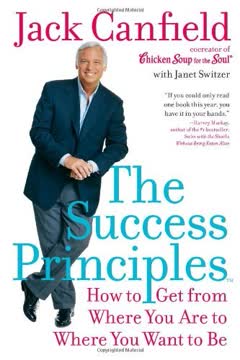Key Takeaways
1. Teaching is a noble profession that shapes lives and futures
A teacher affects eternity; he can never tell where his influence stops.
Profound influence. Teachers have the unique ability to shape not just the present but the future of their students. Their influence extends far beyond the classroom, impacting students' personal growth, career choices, and overall life trajectories. This ripple effect means that a single teacher can indirectly influence countless lives across generations.
Responsibility and privilege. With this great influence comes great responsibility. Teachers are entrusted with nurturing young minds, fostering critical thinking, and instilling values that will guide their students throughout their lives. This position of trust and responsibility makes teaching one of the most noble and important professions in society.
Key areas of teacher influence:
- Academic knowledge and skills
- Personal character development
- Career aspirations and choices
- Social and emotional intelligence
- Civic engagement and citizenship
2. Effective teachers inspire and nurture students' potential
I am not a teacher, but an awakener.
Awakening potential. The best teachers don't simply impart information; they ignite a passion for learning and help students discover their own capabilities. They create an environment where students feel safe to explore, question, and challenge themselves.
Individualized approach. Effective teachers recognize that each student is unique, with their own strengths, weaknesses, and learning styles. They adapt their teaching methods to meet the needs of individual students, providing support where needed and pushing those who are ready for more challenges.
Strategies for nurturing student potential:
- Encouraging curiosity and critical thinking
- Providing opportunities for hands-on learning
- Offering constructive feedback and praise
- Setting high expectations while providing support
- Fostering a growth mindset in students
3. Overcoming challenges in the classroom builds resilience
Experience is the name that everyone gives to his mistakes.
Embracing difficulties. Challenges in the classroom, whether faced by teachers or students, are opportunities for growth and learning. By confronting and overcoming these obstacles, both educators and learners develop resilience, problem-solving skills, and adaptability.
Learning from mistakes. A classroom that embraces mistakes as part of the learning process creates a more positive and productive environment. Teachers who model this approach by admitting their own errors and showing how to learn from them encourage students to take risks and persist in the face of difficulties.
Common classroom challenges and growth opportunities:
- Disruptive behavior
- Learning disabilities
- Language barriers
- Limited resources
- Diverse learning styles
4. The impact of a caring teacher extends far beyond academics
No one ever forgets a teacher who made a difference.
Emotional support. Caring teachers provide more than just academic instruction; they offer emotional support, guidance, and mentorship. This holistic approach to education can have a profound impact on students' self-esteem, motivation, and overall well-being.
Lasting influence. The impact of a caring teacher often extends far beyond the years spent in their classroom. Many successful individuals attribute their achievements to the encouragement and belief of a particular teacher who saw their potential and nurtured it.
Ways teachers show they care:
- Taking time to listen to students' concerns
- Celebrating students' successes, big and small
- Providing extra help outside of class time
- Remembering and acknowledging important events in students' lives
- Advocating for students' needs within the school system
5. Learning is a two-way street: Teachers grow from their students
I am not a teacher but a fellow traveler of whom you asked the way. I pointed ahead—ahead of myself as well as of you.
Mutual growth. The best teachers recognize that learning is not a one-way process. They remain open to learning from their students, valuing their unique perspectives and experiences. This approach creates a dynamic and engaging classroom environment where everyone is both a teacher and a learner.
Continuous improvement. By remaining open to learning from their students, teachers continuously improve their craft. They gain new insights into effective teaching methods, stay current with changing student needs and interests, and maintain their own enthusiasm for learning.
Ways teachers learn from students:
- Adapting teaching methods based on student feedback
- Incorporating student interests into lesson plans
- Gaining new perspectives on subject matter through student questions
- Developing empathy and understanding of diverse experiences
- Staying up-to-date with current trends and technologies
6. Creativity and adaptability are essential teaching skills
Teaching can be a challenging profession. Some days there just doesn't seem to be enough of you to go around.
Innovative solutions. Creative teachers find unique ways to engage students, make complex concepts understandable, and overcome resource limitations. They think outside the box to create memorable learning experiences that cater to diverse learning styles and needs.
Flexibility in approach. Adaptable teachers can quickly adjust their plans in response to student needs, unexpected events, or changes in the educational landscape. This flexibility allows them to maintain effective instruction even in challenging or unpredictable circumstances.
Examples of creative and adaptable teaching:
- Using storytelling to teach abstract concepts
- Incorporating technology and multimedia in lessons
- Creating hands-on learning experiences
- Adapting curriculum to address current events
- Developing cross-curricular projects that integrate multiple subjects
7. Small acts of kindness can have profound, lasting effects
You never know what's going to happen to you or for you. You'd better be prepared.
Ripple effect. Small acts of kindness by teachers can have far-reaching consequences. A word of encouragement, a moment of patience, or a simple gesture of support can be the catalyst that changes a student's life trajectory.
Building trust. Consistent small acts of kindness build trust between teachers and students. This trust forms the foundation for effective learning and can help students overcome personal challenges that might otherwise hinder their academic progress.
Examples of impactful small acts:
- Writing a personal note of encouragement
- Taking time to listen to a student's concerns
- Recognizing and praising effort, not just achievement
- Remembering and acknowledging important events in students' lives
- Providing extra resources or support to struggling students
8. Teachers play a crucial role in building students' self-esteem
Excellence is love in action.
Positive reinforcement. Teachers who consistently provide positive reinforcement and constructive feedback help build students' confidence and self-esteem. This confidence is crucial for academic success and personal growth.
Creating a supportive environment. A classroom environment that celebrates diversity, encourages risk-taking, and values effort as much as achievement fosters the development of healthy self-esteem in all students.
Strategies for building student self-esteem:
- Providing specific, genuine praise
- Offering opportunities for leadership and responsibility
- Encouraging peer support and collaboration
- Celebrating diverse talents and abilities
- Teaching students to set and achieve personal goals
9. The best educators see potential where others see problems
There is no education like adversity.
Transformative vision. Great teachers have the ability to see beyond current challenges and recognize the latent potential in every student. They focus on what students can become rather than being limited by their current circumstances or behaviors.
Persistence and patience. Seeing potential in challenging students requires persistence and patience. Teachers who maintain high expectations while providing consistent support can help students overcome significant obstacles and achieve success.
Approaches to unlocking student potential:
- Identifying and nurturing individual strengths
- Providing targeted support for areas of weakness
- Offering second chances and opportunities for redemption
- Connecting students with mentors or role models
- Creating individualized learning plans
10. Teaching is about creating lifelong learners, not just passing tests
Education is not preparation for life; education is life itself.
Fostering curiosity. The ultimate goal of education is not to prepare students for tests, but to instill a love of learning that will serve them throughout their lives. Teachers who foster curiosity and critical thinking skills create students who are equipped to continue learning long after they leave the classroom.
Real-world application. Effective teachers help students understand the relevance of their learning to the real world. By connecting classroom concepts to practical applications, they demonstrate the value of lifelong learning and prepare students for success beyond academia.
Strategies for creating lifelong learners:
- Encouraging student-led inquiry and research
- Incorporating project-based learning
- Teaching metacognition and learning strategies
- Demonstrating the joy of learning through teacher enthusiasm
- Providing opportunities for students to teach and share knowledge
Last updated:
FAQ
1. What is Chicken Soup for the Teacher's Soul by Jack Canfield about?
- Collection of Inspirational Stories: The book is a compilation of real-life stories from teachers and educators, designed to inspire, encourage, and rekindle the spirits of those in the teaching profession.
- Focus on Educators’ Impact: It highlights the profound influence teachers have on students’ lives, both academically and personally, often shaping character, confidence, and hope.
- Celebration of Teaching: The book serves as a tribute to the dedication, patience, and love teachers bring to their classrooms, portraying teaching as a noble and transformative vocation.
2. Why should I read Chicken Soup for the Teacher's Soul by Jack Canfield?
- Emotional Support for Educators: The book offers encouragement and hope to teachers who may feel overwhelmed, reminding them of the meaningful impact they have on students’ lives.
- Insight for Non-Teachers: Parents, administrators, and anyone interested in education gain a deeper appreciation for the challenges and rewards of teaching.
- Motivation and Validation: The stories provide validation for educators’ efforts and inspire renewed passion and dedication to the profession.
3. What are the key takeaways and lessons from Chicken Soup for the Teacher's Soul?
- Overcoming Obstacles: Many stories focus on teachers and students facing and conquering challenges such as learning disabilities, social issues, and personal hardships.
- Power of Love and Compassion: The book emphasizes that love, patience, and understanding are essential tools for effective teaching and can transform students’ lives.
- Lifelong Impact: Teachers’ influence extends far beyond the classroom, shaping futures and sometimes affecting eternity, as highlighted in several stories and quotes.
4. What are the main themes and sections in Chicken Soup for the Teacher's Soul by Jack Canfield?
- Eleven Thematic Sections: The book is organized into sections like "A Day in the Life," "Love in the Classroom," "Overcoming Obstacles," and "Making a Difference," each exploring different aspects of teaching.
- Personal Anecdotes: Each section contains stories that illustrate the joys, struggles, and triumphs of teaching, offering a holistic view of the profession.
- Holistic Education: The themes collectively portray teaching as shaping not only academic knowledge but also social skills, self-esteem, and moral values.
5. How does Chicken Soup for the Teacher's Soul by Jack Canfield portray the challenges teachers face?
- Complex and Demanding Roles: Teachers are depicted as counselors, mentors, surrogate parents, and disciplinarians, often managing large, diverse classrooms with limited resources.
- Lack of Recognition: Many stories highlight how teachers often work in isolation without sufficient positive feedback or societal appreciation, leading to frustration and burnout.
- Real-Life Obstacles: The book addresses issues like difficult home lives, special needs, behavioral challenges, overcrowded classrooms, and budget cuts, showcasing teachers’ resilience.
6. What are some of the most inspiring stories in Chicken Soup for the Teacher's Soul by Jack Canfield?
- "Any Kid Can Be a Superstar!": A teacher helps a neglected, disruptive student transform through daily support and partnership with his father.
- "The Girl in the Fifth Row": A professor is inspired by a student’s encouragement, leading him to create a course on love after her tragic death.
- "You Never Picked Me Last": A principal’s kindness to a shy, overweight boy has a lasting impact, helping him grow into a confident adult.
7. What are the best quotes from Chicken Soup for the Teacher's Soul by Jack Canfield and what do they mean?
- “A teacher affects eternity; he can never tell where his influence ends.” — Henry Adams: Highlights the lasting and far-reaching impact of teachers.
- “The kids in our classroom are infinitely more significant than the subject matter we’re teaching them.” — Meladee McCarty: Emphasizes the importance of the human element in teaching.
- “Excellence is love in action.” — From the story about Mr. Pierson and Miss Thomas: Suggests that true teaching excellence comes from genuine care for students.
8. How does Chicken Soup for the Teacher's Soul by Jack Canfield illustrate the emotional impact of teaching?
- Emotional Rewards: The book celebrates the joy teachers feel when students succeed or express gratitude, portraying these moments as true compensation.
- Dealing with Grief and Loss: Stories recount teachers coping with personal illness or student tragedies, showing the deep emotional connections formed in the classroom.
- Building Resilience: The book offers strategies for teachers to find strength and motivation, such as keeping positive notes or reflecting on meaningful moments.
9. What practical advice for teachers is found in Chicken Soup for the Teacher's Soul by Jack Canfield?
- Build Relationships: Connecting personally with students fosters trust and motivation, and small acts of kindness can have significant effects.
- Set High Expectations: Teachers are encouraged to believe in their students’ potential and hold them accountable, as seen in stories like Les Brown’s.
- Embrace Patience and Flexibility: Adapting teaching methods to meet diverse needs and allowing room for mistakes helps students learn and grow.
10. How does Chicken Soup for the Teacher's Soul by Jack Canfield address inclusion and special needs in education?
- Integration Stories: The book shares experiences of integrating special needs students into regular classrooms, emphasizing patience, adaptation, and peer support.
- Peer Support: Stories highlight the power of peer tutoring and friendship in helping special needs students thrive.
- Teacher Adaptation: Teachers are shown adapting lessons and approaches to ensure all students, regardless of ability, can succeed.
11. What role do students play in the stories of Chicken Soup for the Teacher's Soul by Jack Canfield?
- Students as Teachers: Many stories show how students teach educators about resilience, hope, and humanity, reversing traditional roles.
- Peer Support and Growth: The book highlights the importance of students supporting each other, fostering a positive classroom environment.
- Gratitude and Transformation: Stories feature students expressing appreciation and demonstrating personal growth, reinforcing the impact of teachers’ efforts.
12. Who are the notable contributors to Chicken Soup for the Teacher's Soul by Jack Canfield, and what are their backgrounds?
- Jack Canfield and Mark Victor Hansen: Renowned authors and motivational speakers, co-creators of the Chicken Soup for the Soul series, with backgrounds in education and personal development.
- Educators and Writers: The book features stories from teachers, counselors, and education professionals from diverse backgrounds, including special education and inner-city schools.
- Experts in Human Potential: Contributors include psychologists, motivational speakers, and authors who provide insights into teaching, learning, and personal growth.
Review Summary
Chicken Soup for the Teacher's Soul receives mostly positive reviews, with readers finding it inspirational and touching. Many appreciate its heartwarming stories about teachers' impact on students' lives. Some criticize the book for being outdated, overly religious, or focused on elementary education. Teachers find it motivating and encouraging, especially during challenging times. A few readers note the lack of representation for middle school teachers. Overall, the book is praised for its ability to reconnect educators with the human aspects of teaching.
Download PDF
Download EPUB
.epub digital book format is ideal for reading ebooks on phones, tablets, and e-readers.















